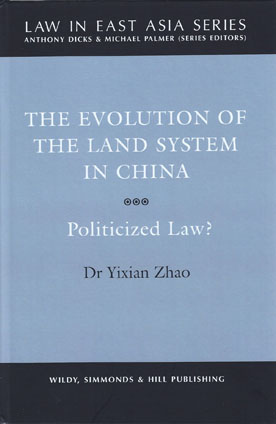
This study offers the reader an in-depth analysis of the role of law in China’s impressive post-Mao economic transformation, contextualizing the Chinese experience in law and development theory and its application to China.
The book makes a substantial contribution to discourses on the very important issue of the nature of the Chinese land system in the transformation from state-planning to the market. It is an on-going debate as to whether demarcated and secure property rights are essential for sustainable economic development.
In addition, land is an extremely important issue in China, especially in terms of the role of state and the manner in which the state is dealing with land ownership and other rights in times of change. The book examines the hybrid dynamic of Chinese land law, the multi-layered stakeholders involved, and the varied and divergent incentives for exploiting land.
The evolution of mainland China’s land system has been shaped by various political and social forces, and the book highlights key aspects of the nature of the law and how complicated the law in action can be in transitional socio-economic systems such as that of China. The book also offers an evaluation of western mainstream theories of property rights and their relevance for understanding the place of land rights in Chinese society.